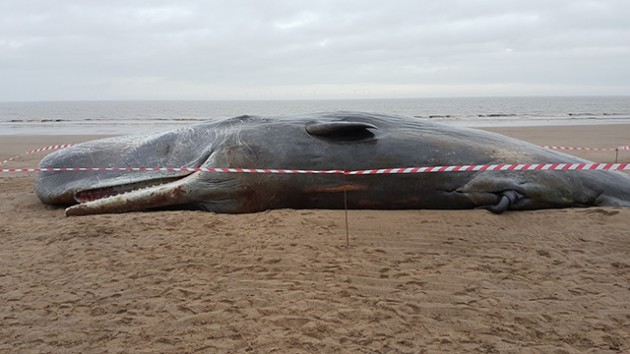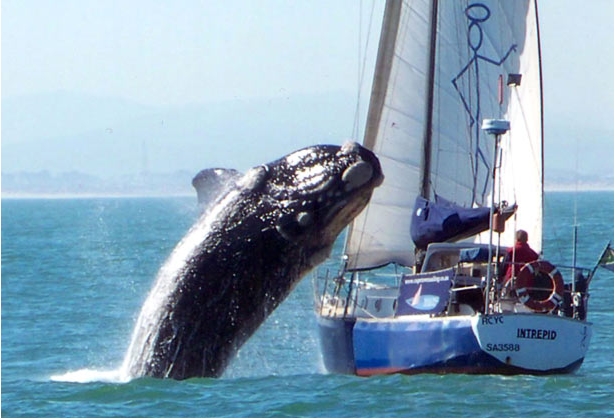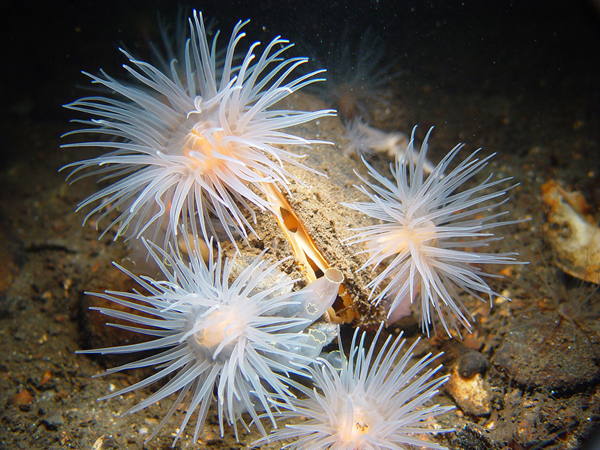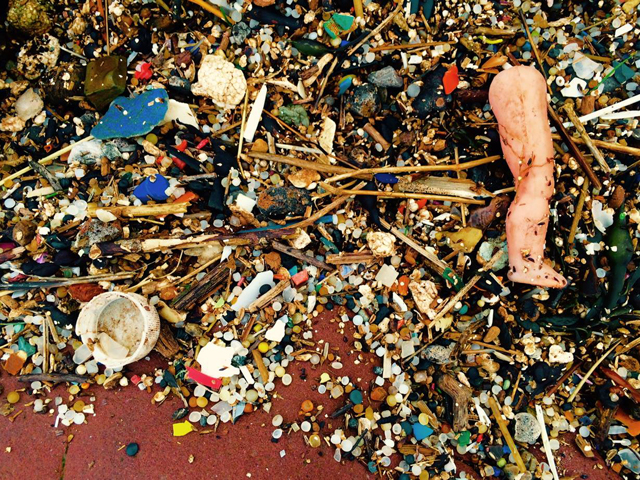HM Coastguard are advising members of the public to stay away from five dead sperm whales that washed up on beaches near Skegness, Lincolnshire and Hunstanton, West Norfolk.
A Nature Reserve Warden in the area alerted HM Coastguard when he found two dead sperm whales, approximately 48ft in length, near Skegness on Saturday evening at around 8.30pm. A third dead whale was found washed up on Sunday morning.
On Monday a fifth whale was found washed up near Wainfleet, Lincolnshire. A coastguard spokesman said: ‘The area is currently inaccessible, but we have informed the Maritime and Coastguard Agency’s Receiver of Wreck and the Zoological Society of London.’
At around 3.30pm on Friday, a pod of up to six whales swimming close to Hunstanton Beach, on the East coast of England.
A large Bull Sperm whale from the pod later beached itself and despite efforts from British Divers Marine Life Rescue and Beach Wardens from the Sea Life Centre to refloat the whale out to sea, it later died at around 11pm. The whale is estimated to be 40-45ft long and weighs approximately 30 tonnes.
Hunstanton Coastguard Rescue Team, Norfolk Police and Hunstanton RNLI Hovercraft also attended. The remaining pod were last seen heading towards King’s Lynn.
UK Coastguard Richard Johnson said: ‘It was obviously a very distressing scene earlier and we would ask the public to stay away from the beach. We are due to cordon off the area and later today an officer from the Zoological Society of London will be inspecting the animal and carrying out tests.’
Three further whales were found dead on a beach near Skegness. They are believed to be from the same pod.
Richard Johnson added: ‘We believe that the three whales at Skegness died at sea and then washed ashore. We are advising members of the public to stay away from the beach. We have informed the Receiver of Wreck and we are expecting an officer from the Zoological Society of London to attend the scene and carry out tests on the whales.’
Dead whale washes ashore in Wales
HM Coastguard are advising the public to stay away from the carcass of an 8.2 metre whale which washed up…
Stranded minke whale sparks rescue
RNLI lifeboat crew, RSPCA inspectors and Coastguard staff attended the rescue in North Wales
Yacht crushed by whale back on the water
South african yacht Intrepid's whale damage repaired
Whale found to be more than 100 years old
A weapon fragment lodged in whale's shoulder dates back to 1800s
Killer whales spotted off Northern Ireland
If you spot a 7ft fin slicing through the water this summer, don't be alarmed.
Marine Protected Areas doubled to tackle Scotland’s sealife declines
The new nature conservation MPA designation orders come into force on 7 August
New Marine Conservation Zones announced
Europe’s longest chalk reef – the Cromer Shoals in Norfolk – is among the 23 latest areas to gain protected
Marine charity urges public to go plastic-free in June
Hundreds sign up to ditch single use items and highlight issue of plastic in our seas












